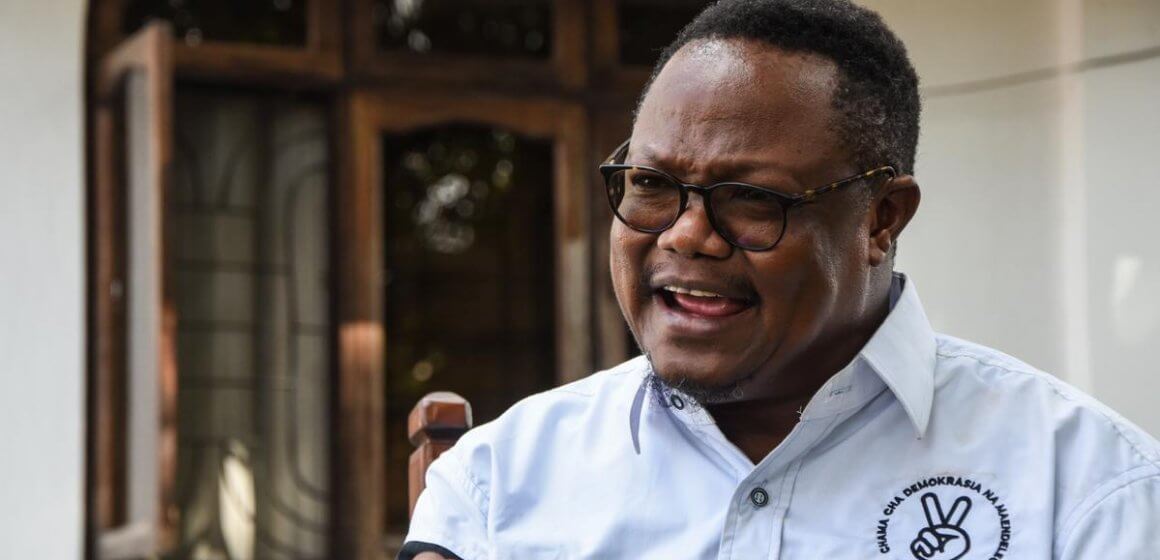|
LISTEN TO THIS THE AFRICANA VOICE ARTICLE NOW
Getting your Trinity Audio player ready...
|
Tanzania’s political landscape witnessed a significant shift Wednesday, January 22, 2025, as Tundu Lissu was elected chairman of Chadema, the country’s largest opposition party. The victory ended Freeman Mbowe’s 20-year leadership and signaled a new chapter for the party ahead of the presidential elections slated for October this year.
The tightly contested race underscored growing tensions within Chadema. Lissu, a fiery and outspoken politician, campaigned on promises of revitalizing the party and criticized Mbowe for adopting what he termed a “too conciliatory” approach toward the ruling CCM party. This, Lissu argued, had caused public trust in Chadema to wane.
Mbowe, who led the party through two decades of challenges and successes, defended his record by emphasizing his ongoing efforts to strengthen Chadema. He dismissed Lissu’s accusations as baseless and rooted in political ambition.
The party election results, announced on Wednesday morning, showed Lissu securing 51.5% of the votes, narrowly defeating Mbowe, who garnered 48.3%. Despite the loss, Mbowe graciously accepted the outcome, posting a message on X (formerly Twitter) congratulating Lissu and pledging his support for the new leadership.
“I congratulate Tundu Lissu and his colleagues for being entrusted with the responsibility of leading Chadema. I wish them success as they guide our party forward,” Mbowe wrote, sharing a photo of himself with Lissu.
Lissu, upon his victory, lauded the process as a testament to Chadema’s commitment to internal democracy. “Our party has set an example for others in Tanzania. Let this be the standard for political accountability and transparency,” he said.
Tundu Lissu’s political career has been marked by both triumph and tragedy. A staunch critic of the CCM, he has been a vocal advocate for human rights and democracy in Tanzania. His resilience became evident in 2017 when he survived an assassination attempt during President John Magufuli’s administration. Lissu underwent over 20 surgeries abroad after being shot 16 times.
After a brief return to Tanzania in 2020, where he contested and lost the presidential race to Magufuli, Lissu went into exile again, citing threats to his life. He only returned in 2023 under President Samia Suluhu Hassan’s administration, which succeeded Magufuli’s following his death in 2021. However, Lissu has accused the current government of continuing repressive practices, including arrests and abductions of opposition figures.
With presidential elections looming, Lissu’s leadership is seen as a bold step toward reinvigorating Chadema as a formidable opposition force. During his campaign, he positioned himself as a fearless leader who could effectively challenge the government. Analysts believe his election reflects a desire within Chadema for a more assertive approach in confronting CCM’s dominance.
Political commentator Nicodemus Minde suggested that the party’s unity post-election would be critical in determining its success. “If Lissu and Mbowe can maintain cohesion, either one of them could potentially become Chadema’s presidential candidate,” Minde said.
Meanwhile, CCM has already nominated President Samia Suluhu Hassan as its flag-bearer for the upcoming elections. Chadema has yet to announce its candidate, leaving political observers keenly watching how the opposition shapes its strategy under Lissu’s leadership.











LEAVE A COMMENT
You must be logged in to post a comment.